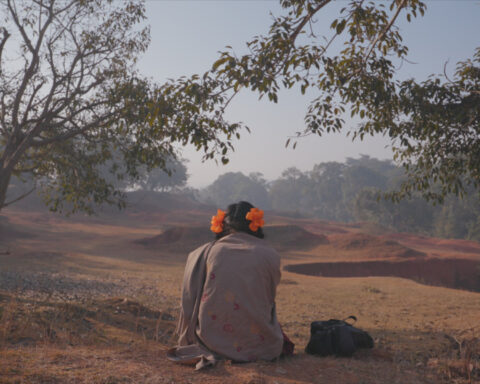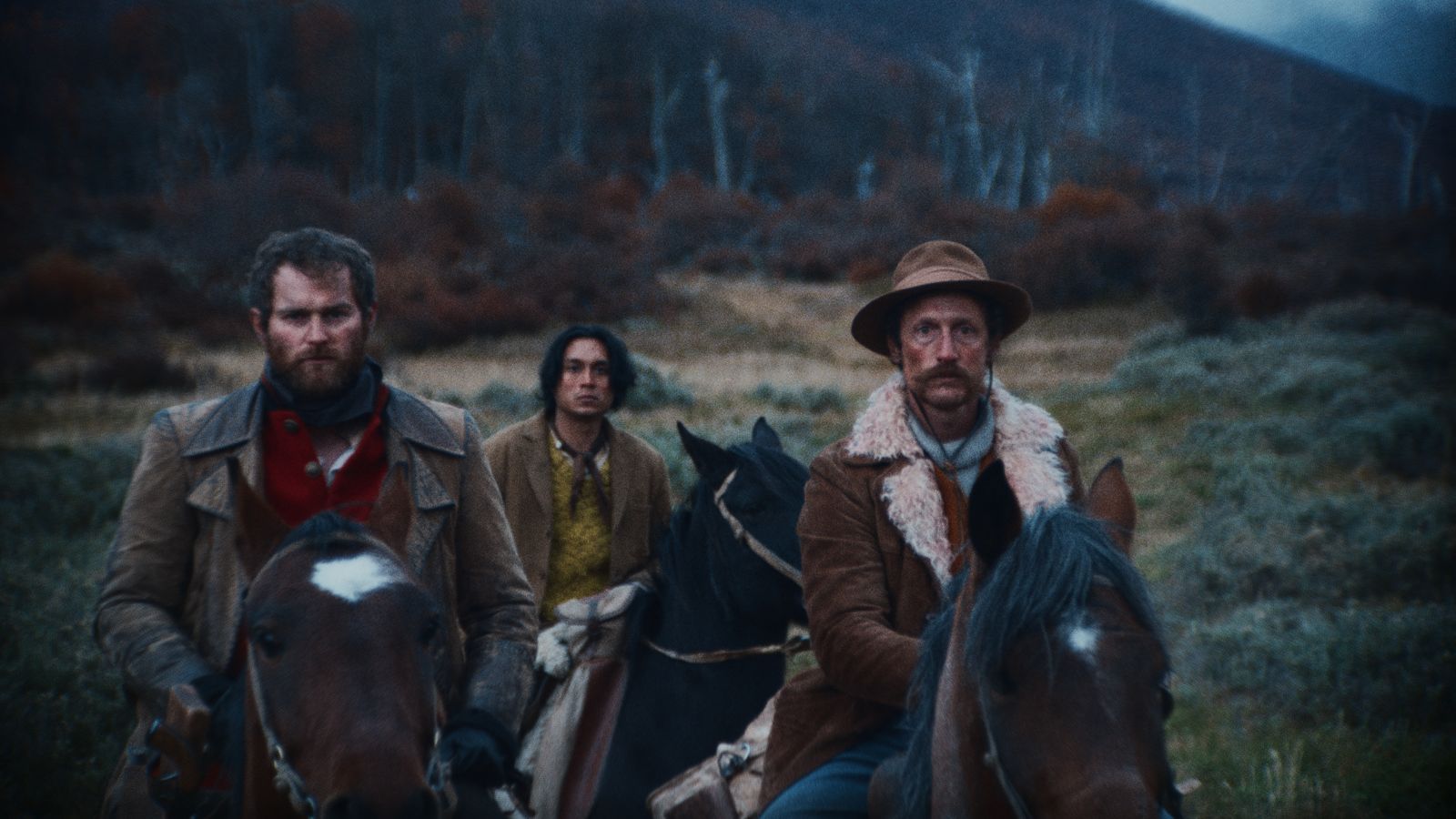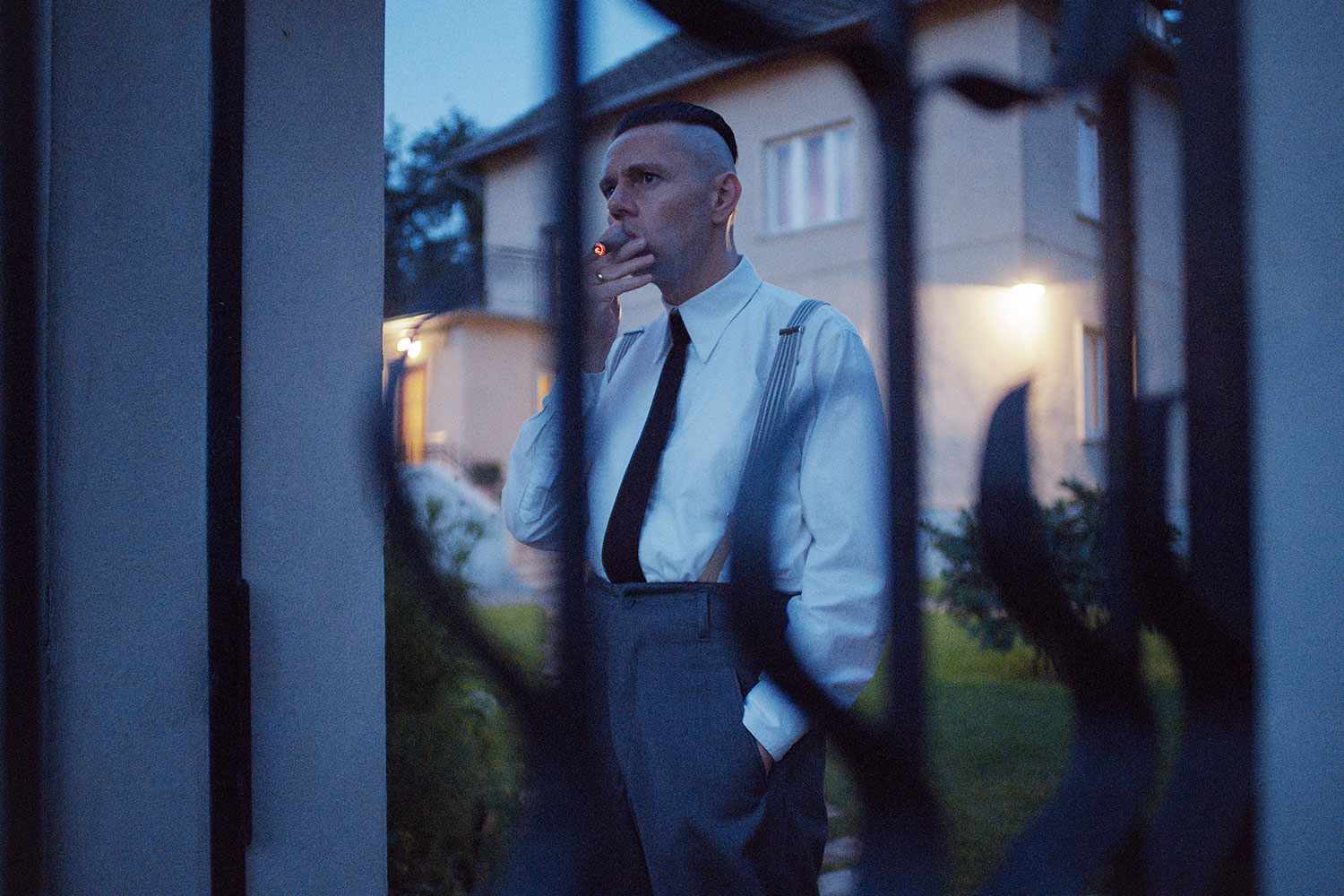Nikolaj Arcel‘s The Promised Land is set in 18th-century Denmark, where Captain Ludvig Kahlen (Mads Mikkelsen), a proud and ambitious war hero of humble birth, has retired from the German Army after an illustrious 25 years of service. Despite his impoverished state, he persuades the Royal Danish Court to allow him to cultivate on a barren property of Jutland moorland, relying solely on his meager pension. In exchange for this ambitious undertaking, he seeks the coveted privilege of a noble title accompanied by a grand manor. Embarking on this daring venture, he faces the challenge of not only an inhospitable territory but also a county judge residing in the formidable Hald Manor, Frederik De Schinkel, known for his merciless rule and land ownership. Undeterred by the harsh elements and local brigands, Ludvig forms an unlikely alliance with a couple, Johannes Eriksen and his wife Ann Barbara, who have escaped the clutches of the tyrannical De Schinkel. Together, this group of misfits endeavors to establish a small community in the face of adversity. Adding to the complexity of the tale is Edel Helene, De Schinkel’s cousin and intended bride, who finds a glimmer of hope in Ludvig, secretly forging a connection with him. They strike a pact that if Ludvig can secure a noble title within the year, they will marry, providing her with an escape from the undesirable union with her cousin. Amid Ludvig’s ongoing struggle, he encounters Anmai Mus, a young outlaw girl shunned by other settlers for her dark skin. As these diverse threads intertwine, the film promises a riveting narrative of ambition and unexpected alliances in the face of seemingly insurmountable challenges.
The screenplay by Arcel and Anders Thomas Jensen adapted from Ida Jessen’s novel The Captain and Ann Barbara unfolds with the grandeur of a painting a vivid portrayal of a man navigating the vast expanse of untamed wilderness. The narrative encapsulates the themes of the lone individual struggling against the wild, a clash between a settler and a wealthy landowner, and the age-old debate of natural chaos versus the civilizing force of society. At its core, this is a tale of nobility and class, featuring a man so determined to ascend the social ladder that he metaphorically bends the very earth to his will. Ludvig, a man of unwavering honor, has dedicated his life in service to his country. With his military career behind him, he sets his sights on a new chapter, seeking to transform troubled land into a thriving farm in the name of the King. Ludvig’s endeavor becomes a symbol of his commitment to life, foregoing familial ties and romantic entanglements. As Ludvig’s journey unfolds against the backdrop of a society in transition the cultivation of the land serves as his pathway to not only create a sanctuary for himself but also to garner honor in society. However, the arduous process consumes him to the point where the lives of those close to him hang in the balance and inadvertently places his relationships in jeopardy. Yet, as he achieves his formidable task, he comes to an acute realization about the intrinsic value of human connection. Ludvig’s pursuit triggers a reassessment of his desire for a title, forging bonds and assembling a unique family of outcasts. As he defies societal norms to embrace a newfound sense of belonging, the film takes on the essence of a Nordic Western—blending a historical drama with elements of romance and revenge.

The trio of central female characters not only introduces a subtle political undertone but also navigates with agility through the dark ambiance of the film, allowing the delicate buds of romance to bloom. Ann vividly portrays the exploitation of women for sexual gratification by the powerful men of that era. Edel, on the other hand, serves as an illustration of the limited agency women had in defying parental expectations when selecting a life partner. Meanwhile, Anmai grapples with the harsh reality of racism, where her dark skin becomes her most formidable adversary. In Ludvig’s world, Ann evolves into a moral compass guiding his actions, Edel becomes the harbinger of romantic dreams and elite aspirations, while Anmai offers an emotional connection that is foreign to his experiences. In collective harmony, these diverse female characters intricately thread a tender fabric of complexity, skillfully delving into intricacies and imbuing the protagonist’s journey with perceptiveness.
The film is meticulously crafted in its narrative architecture—its central characters and conflicts are neatly laid out in the initial minutes and so it hooks our attention throughout its over two-hour runtime. Each time a glimmer of hope appears for the protagonist, it is swiftly eclipsed by a new conflict. Although the narrative unfolds organically, the reliance on this classical trope prevents the film from ascending to the realm of exceptional storytelling. De Schinkel, as the antagonist, embodies typical traits, fitting the mold of a conventional adversary. However, the film’s climax carries a subtlety that, while artful, leaves a sense of incompleteness and fails to evoke a wholehearted emotional response. It neatly and perhaps a bit too perfectly resolves all lingering uncertainties.

Mads Mikkelsen delivers a compelling performance; a man steadfastly devoted to his objective appears to kindle the wrath of the surviving in the wilderness. Through nuanced details, he skillfully conveys his character’s gradual softening, adding a touch of finesse to his commanding presence. Amanda Collin, embodying the character of Ann Barbara, quietly affirms herself through unexpected avenues, emerging as a formidable force. She portrays a woman who is unflinchingly resilient yet palpably feminine during an era of immense hardship. Simon Bennebjerg, portraying Frederik de Schinkel, embodies the character as an egotistical and sadistic figure, a wielder of power who unfortunately lacks the depth that could have rendered his persona equally intriguing. The remaining ensemble, with Melina Hagberg as Anmai Mus, Kristine Kujath Thorp as Edel Helene, and Gustav Lindh as Anton Eklund, skillfully embodies their roles, injecting authenticity and credibility into their performances.
Rasmus Videbaek‘s cinematography artistically captures the unforgiving beauty of the Danish heath, delving into the intimate interiors of Ludvig’s lodgings, and unveiling the grandeur of the rulers’ mansions. His utilization of wide shots creates a splendid depiction of the rugged landscape, resembling a painting that elevates and adds brilliance to the visual narrative. Olivier Bugge Coutté‘s editing skillfully navigates the intricacies of the circumstances, entwining us in the protagonists’ arduous journey with intrigue. Jette Lehmann‘s artistry in production design, coupled with Kicki Ilander‘s details in costume creation, breathes life into the film’s historical setting, enveloping us in a rich period experience. The sound design by Claus Lynge and Hans Christian Kock not only sustains the delicate seasonal and emotional nuances of the film but also captures an elusive ambiance, weaving a symphony of both courage and somber moments. Dan Romer’s background score adeptly captures the mood with precision.
The Promised Land maintains an emotional tone without succumbing to oversentimentality that strikes a human chord while recounting a tale of grit, courage, and the inevitable price that accompanies such resilience.






